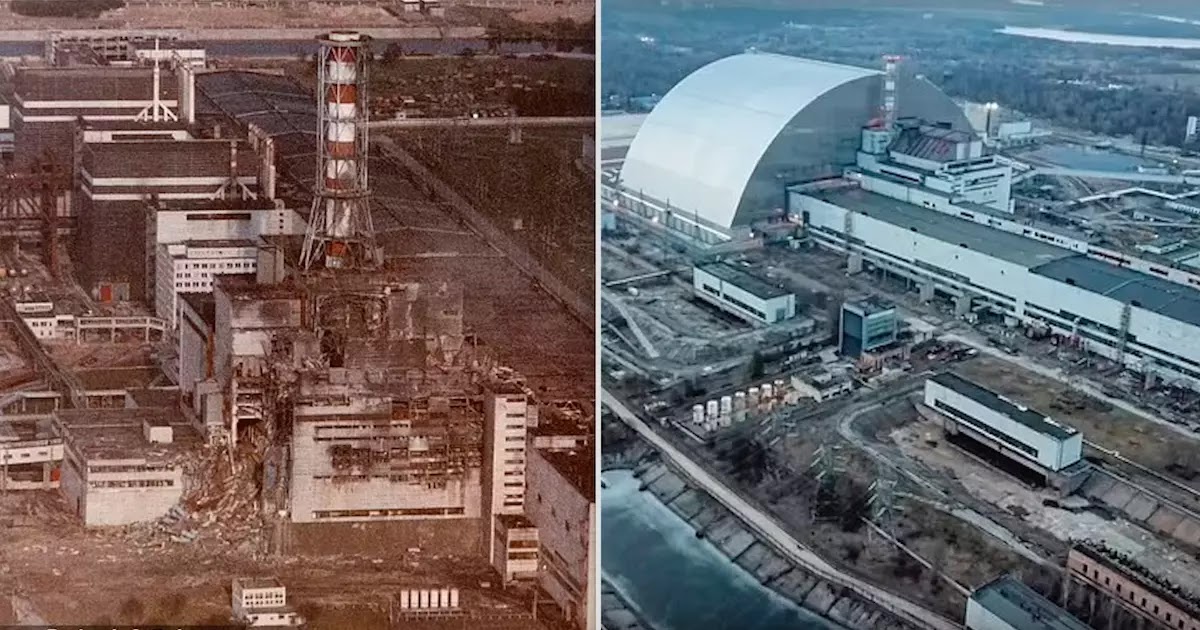
The Ukrainian government has announced that they believe the Chernobyl nuclear power plant could begin leaking radiation in the next 48 hours.
The plant, currently under Russian military control but manned by Ukrainian staff, was the site in 1986 of the world's worst nuclear disaster and ever since then the site has been encased in concrete and overseen by a crew who maintain safety at the facility.
Currently, spent nuclear fuel at the site is cooled through water pumps that are powered through electricity. However, power to the plant has now been cut and are running on backup diesel generators that may not last much longer.
Ukraine's Foreign Minister Dmytro Kuleba said of the crisis:
"Reserve diesel generators have a 48-hour capacity to power the Chornobyl NPP. After that, cooling systems of the storage facility for spent nuclear fuel will stop, making radiation leaks imminent."
Professor of Nuclear Material Degradation at Sheffield University, Claire Corkhill, told The Daily Mail:
"With the electricity supply to the Chernobyl site unavailable, there are several areas of concern with regards to the safety of the nuclear material stored there. This material produces heat through radioactive decay and requires constant cooling, which is achieved by pumping fresh cool water into the ponds. With no power supply, this water could slowly evaporate, potentially resulting in contamination of the building by low levels of radioactive isotopes."
She went on to add that this was not the only danger, saying:
"It is essential that radiation monitoring systems are able to constantly monitor the situation inside reactor 4 so that we can be aware of any potential reasons for concern about the exposed nuclear fuel that resides there. Another serious concern is the maintenance of the ventilation system in the New Safe Confinement structure. The Chernobyl New Safe Confinement is the huge cover - or sarcophagus - that was placed over reactor four in 2016. This prevents further degradation of Reactor number 4 and the hazardous exposed nuclear fuel within, and is essential to the future decommissioning of the site. If there is no power to this structure, we could see the complete failure of the 1.5Bn euro decommissioning programme to make the site safe once and for all."
Earlier this week, Russian forces were accused of striking Europe's largest nuclear power plant at Zaporizhzhia in southern Ukraine with artillery fire and bullets. The power-plant is now under Russian military control.
[Based on reporting by: The Daily Mail]












COMMENTS